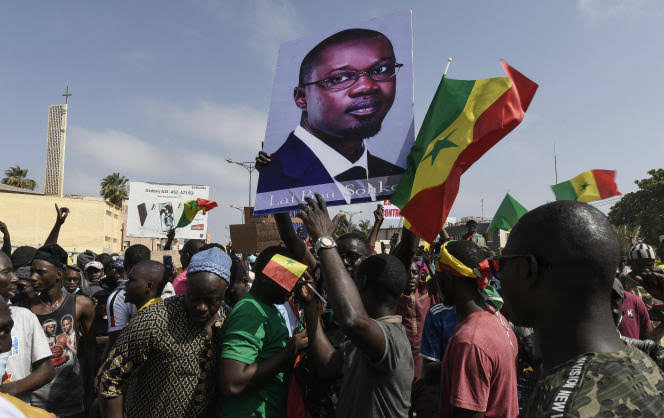As Senegal gears up for its presidential election on March 24, the opposition coalition, backed by influential figure Ousmane Sonko, has unveiled a transformative campaign platform. Aimed at radically altering the nation’s economic landscape, their plan includes the introduction of a new national currency and the overhaul of existing mining and energy contracts. Bassirou Diomaye Faye, the coalition’s presidential candidate, is emerging as a formidable contender among the nineteen candidates, promising sweeping changes that could significantly impact both the West African Economic and Monetary Union and Senegal’s burgeoning oil production ambitions.
Faye’s campaign platform, detailed in an 84-page document, outlines a vision for Senegal’s full independence, emphasizing control over its economy, livestock, fisheries, and agriculture. “Achieving food, digital, fiscal, energy, and scientific sovereignty,” Faye articulated, encapsulating the coalition’s commitment to comprehensive national autonomy. The coalition, comprising members of Sonko’s now-dissolved Pastef party among others, rallied behind Faye following Sonko’s disqualification due to a defamation conviction. Sonko’s endorsement of Faye has heightened the stakes, given his considerable influence, especially among the youth disenfranchised by economic woes and job scarcity in the 17-million-strong nation.
The opposition’s agenda seeks not only to address social inequalities and unemployment but also proposes significant governance reforms. These include the creation of a vice-president role and the elimination of the prime minister’s position. Of particular note are plans that could unsettle both regional partners and foreign investors, such as tax and customs reforms, the adoption of a national currency, and the renegotiation of crucial mining, hydrocarbon, public procurement, and infrastructure contracts.
While the platform outlines preparatory steps for the introduction of a new currency, it poses a potential challenge to the CFA franc, which has recently come under scrutiny from junta-led states in the region considering its abandonment. Although specifics on contract restructuring are scant, the coalition’s intent to leverage the mining sector for socio-economic development and maximize oil production revenues is clear.
Senegal stands on the brink of becoming an oil producer with the Sangomar oil and gas project, led by Woodside Energy, poised to start production in mid-2024. Expected to yield about 100,000 barrels per day, this project marks a significant milestone in Senegal’s economic development. The opposition’s ambitious platform promises a seismic shift in Senegal’s economic policies, aiming for greater autonomy and prosperity. As the election approaches, the feasibility and implications of these proposals remain central to discussions among stakeholders, with the potential to redefine Senegal’s economic trajectory and its role in the West African region.



